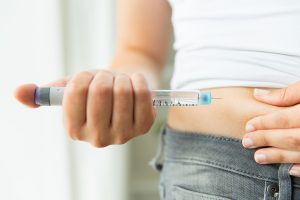A research team under Professor Deanna Gibson from UBC Okanagan, BC has found that antibiotic use accelerates diabetes. To be more specific, they found that antibiotic overuse was the problem. There was a connection between antibiotic overuse and the development of juvenile diabetes (type 1 diabetes).
Gut flora composition was analyzed with bacterial cultures. Following frequent antibiotic use there was a shift towards less beneficial gut bacteria. These are associated with a change in the body’s immune reactions. This caused autoantibodies directed against the insulin producing cells in the pancreas. This causes type 1 diabetes. This type of diabetes can only be treated with daily insulin needles. “We were able to establish a clear relationship between bacteria, the body’s immune reaction and the development of Type 1 diabetes,” Prof. Gibson said. She is a microbiologist at the Irving K. Barber School of Arts and Sciences (UBC Okanagan Faculty).
Other research showing that antibiotic use accelerates diabetes
Other research seems to be supporting what Prof. Gibson is saying.
- A research group from Catania, Italy is also working on using probiotics to prevent diabetes.
- Mouse research from Yale University, Connecticut showed interesting findings. When pregnant mice were pretreated with the antibiotic neomycin this caused problems. These mice produced litters of mice that were very susceptible to type 1 diabetes. They also had typical autoimmune antibodies. These were directed against the insulin producing pancreatic cells.
- A May 2016 study from Harvard University and Helsinki University pointed to the gut. It showed that gut bacterial composition was the key. It could explain why in Finland autoantibodies and type 1 diabetes were common. But in Russian children this was extremely rare. These authors had done stool cultures on children from birth till the age of 3. They were children in both Finland and Russia. There were profound bacterial growth differences. In the Finnish population there was a lack of E.coli, which has immune stabilizing functions. Instead the Finnish and Estonian infants showed abundant Bacteroides species. In Russian infants Bacteroides species were missing. Bacteroides bacteria did not suppress type 1 diabetes development while E.coli did. The authors suggested that in future very likely probiotics would be used. This would change early colonization into healthy gut bacteria. A negative immune response would be silenced. At the same time the gut bacteria and the immune system would be balanced.
Conclusion
Recent research has shown that antibiotic use accelerates diabetes. The human gut flora composition is crucial in early infancy. It determines whether or not type 1 diabetes (juvenile diabetes) will develop. Probiotic therapy may well reduce the risk of type 1 diabetes. Prospective studies in that regard will likely follow soon.
More info about type 1 diabetes: https://nethealthbook.com/hormones/diabetes/type-1-diabetes/








